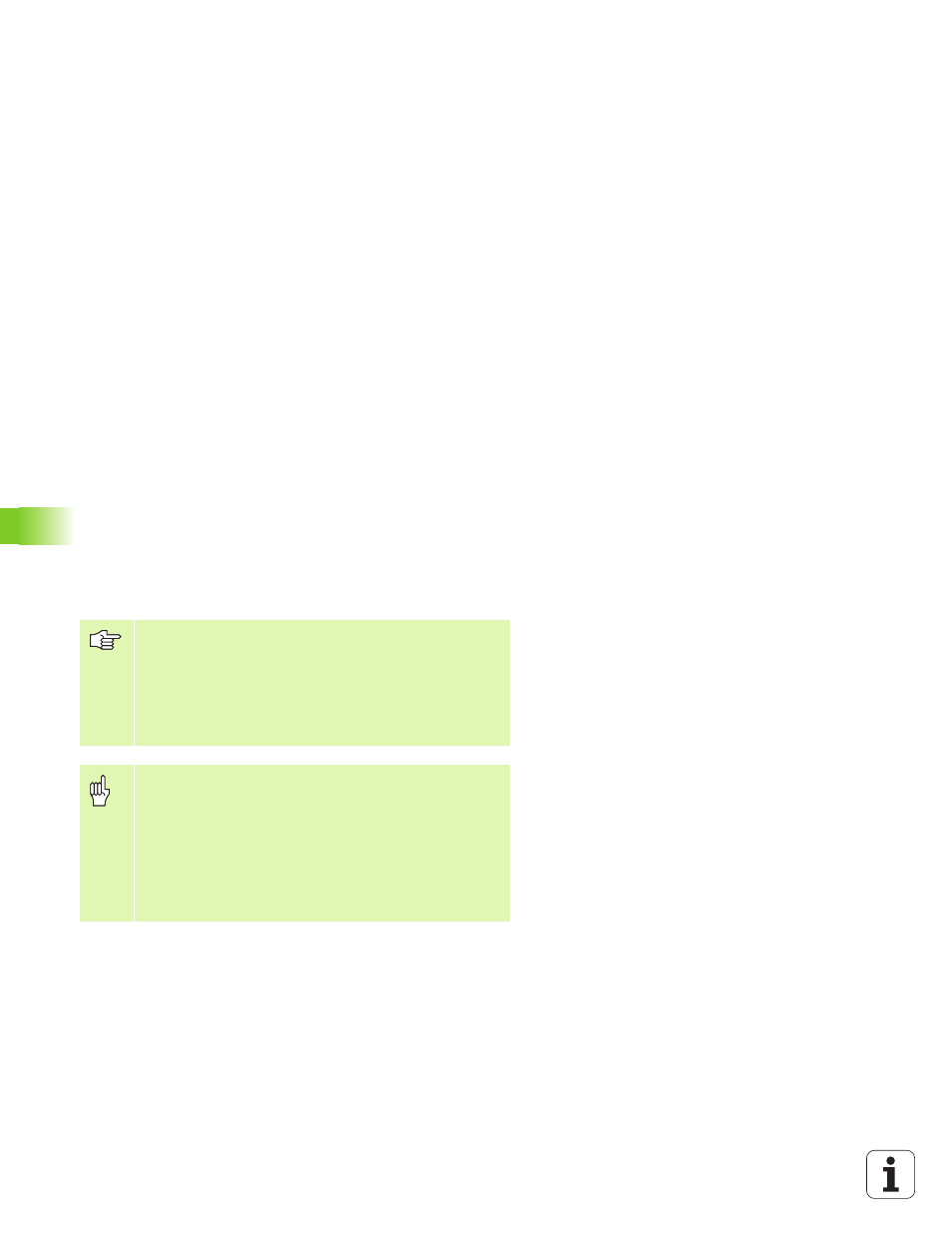Universal pecking (cycle 205) – HEIDENHAIN TNC 320 (340 551-01) User Manual
Page 192

192
8 Programming: Cycles
8.2 Cy
cles f
o
r Dr
illing,
T
apping and Thr
ead Milling
UNIVERSAL PECKING (Cycle 205)
1
The TNC positions the tool in the tool axis at rapid traverse FMAX
to the programmed set-up clearance above the workpiece surface.
2
If you enter a deepened starting point, the TNC move at the
defined positioning feed rate to the set-up clearance above the
deepened starting point.
3
The tool drills to the first plunging depth at the programmed feed
rate F.
4
If you have programmed chip breaking, the tool then retracts by
the entered retraction value. If you are working without chip
breaking, the tool is moved at rapid traverse to the set-up
clearance and then at FMAX to the entered starting position above
the first plunging depth.
5
The tool then advances with another infeed at the programmed
feed rate. If programmed, the plunging depth is decreased after
each infeed by the decrement.
6
The TNC repeats this process (2 to 4) until the programmed total
hole depth is reached.
7
The tool remains at the hole bottom—if programmed—for the
entered dwell time to cut free, and then retracts to the set-up
clearance at the retraction feed rate. If programmed, the tool
moves to the 2nd set-up clearance at FMAX.
Before programming, note the following:
Program a positioning block for the starting point (hole
center) in the working plane with radius compensation R0.
The algebraic sign for the cycle parameter DEPTH
determines the working direction. If you program
DEPTH = 0, the cycle will not be executed.
Use the machine parameter suppressDepthErr to define
whether, if a positive depth is entered, the TNC should
output an error message (on) or not (off).
Danger of collision!
Keep in mind that the TNC reverses the calculation for pre-
positioning when a positive depth is entered. This
means that the tool moves at rapid traverse in the tool axis
at safety clearance below the workpiece surface!
